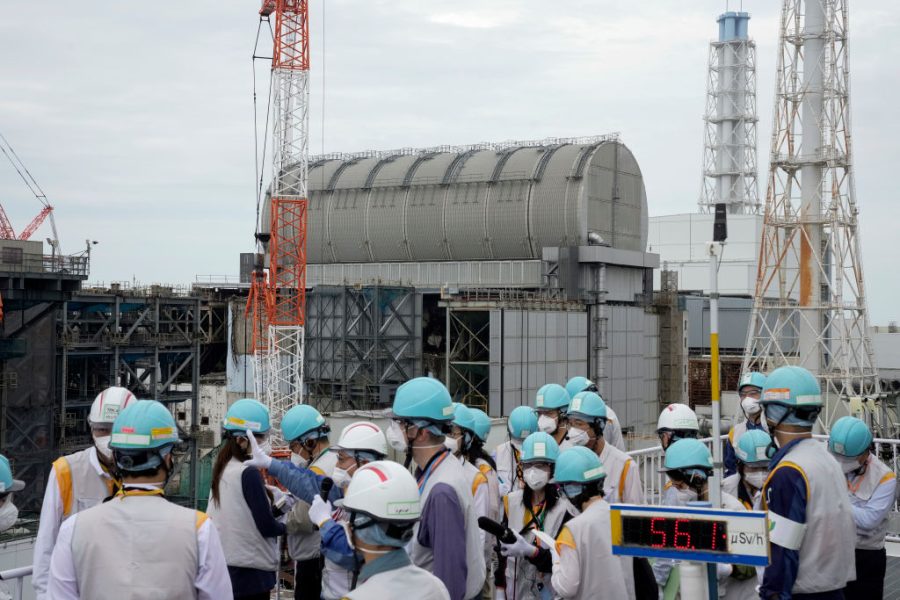Tokyo
For many, the idea of quitting a job they hate, of walking into their boss’s office and telling him or her in no uncertain terms what they think of it (and them perhaps), and then striding out without a backward glance, is a delicious one, a pleasant daydream to be enjoyed on the dreary daily commute. But for the Japanese, the idea of resigning from your company is positively traumatic, so much so that the latest boom industry here is agencies who will take care of the whole messy business for you.
For the Japanese, the idea of resigning from your company is positively traumatic
There are now dozens of so-called “resignation firms” in Tokyo, which will act as an intermediary between the prospective resignee and their company. The firm will deliver the news of the desired departure, negotiate the terms of release and take care of all the paperwork. The typical cost for the service is quite reasonable for Japan — about $200 or half that if you are just a part-timer.
A particularly successful example is the artfully named “Momuri” (Japanese for “I can’t take it anymore”). Momuri received 174 requests (a company record) for resignation assistance on the last day of the annual Golden Week holiday (May 5). This is the peak quitting period as the prospect of a return to work, with no more holidays until a brief one in August, looms depressingly large. This angst even has its own name, gogatsubyo (May blues), a more intense version of Sazae-san syndrome, a reference to the work-related gloom that descends on Japanese people at the end of the weekly animated sitcom Sazae-san (7 pm Sunday).
The resignation companies report the main reason people give for wanting to quit is that the reality of the jobs they have taken differs from their expectations. That sounds like characteristic Japanese polite understatement to me and could probably be translated as “My job is a living nightmare” or “I’m a Japanese salaryman/woman, get me out of here!”
Despite various government attempts to pep things up (flexi-time, dress-down Friday, working from home), Japan’s employee lifestyle can be an utterly miserable affair. Working hours are punishing, often involving excessive amounts of overtime. This is sometimes even unpaid (“service overtime”), if you are unlucky enough to work for one of the notorious “black” companies who exploit their staff mercilessly.
Then there is the rigid hierarchy and strict protocol of a Japanese office, somewhat redolent of a medieval court, but with no jesters allowed to lighten the mood. This not only means having to pour your boss’s drinks on obligatory late-night drinking sessions (when most staff would rather just go home) but extends to the language used in every interaction. A junior can only address a senior using humble respectful language. This chore, combined with all the other potential etiquette pitfalls, puts staff constantly on edge for fear of offending.
The mental-health consequences of this are a serious problem and appears to be getting worse: there were nearly 3,000 suicides last year ascribed to work-related stress, and a similar number the year before. And it’s not clear that companies are doing much to help. The worst case I heard about was a bank that built a gleaming new office block in the center of Tokyo, with the unusual feature of balconies where staff could take a break and enjoy the skyline. Unfortunately, the work culture was in all other respects so brutal that the balconies were more often used for suicide jumps. The problem became so bad that the company was forced to take action. Which they did — by removing the balconies.
So work is hell (often, not always — there are decent companies too). But why then would escaping from this hell be so difficult? The problem lies partly in the attitude the Japanese have to their work and how it defines their position in society. I once interviewed a famous businessman who explained that “Japanese people feel like they are working for Japan.” They see it as like being in the army; a hard life but one must do one’s duty. By quitting you are essentially letting the side down — the side being Japan. It is tantamount to deserting.
Which makes the face-to-face encounter itself, the admission of failure and its aftermath — the sour mood that must be endured as you serve out a notice period and train up your replacement, all the time conscious that you have sown disharmony and added to the already heavy burden born by your colleagues — an intolerable prospect. It is perhaps understandable that many Japanese people are choosing to leave the whole painful process to the professionals.
It is also part of a broader societal trend. Just as in the professional sphere, so too in the domestic is much of the awkwardness of life being either outsourced or automated. For instance, while there were always match-makers in Japan, taking the hard work out of finding a suitable life partner, and specialist agencies to investigate the background of your prospective match (to save you having to ask), there are now also professional “match-breakers” (wakaresaseya) who can be employed to facilitate a separation if you wish to divorce your spouse but can’t face the confrontation.
It makes you wonder where all this is heading. To a world where you can go through your entire life without ever having a difficult conversation — or perhaps any meaningful face-to-face interaction at all? A frictionless, perhaps even contactless, future.
This article was originally published in The Spectator’s UK magazine. Subscribe to the World edition here.


























Leave a Reply